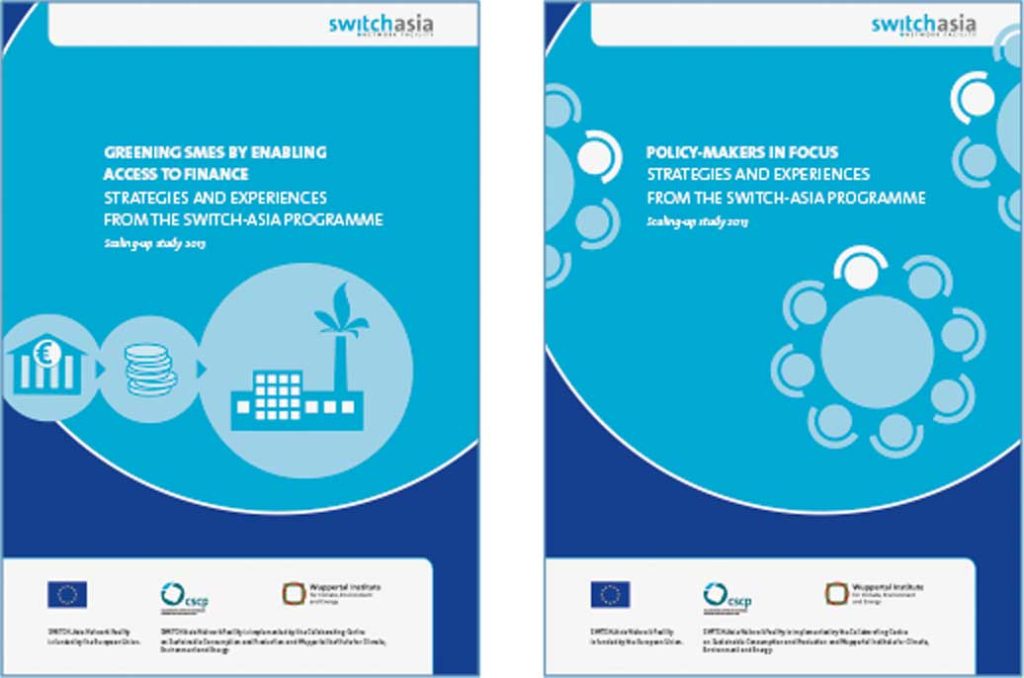At their best, development programmes contain ‘leverage points’ where a relatively small effort can produce a significant leap in the replication of the effort invested. Susanne was involved in a research of this leverage points across the EU-funded SWITCH-Asia programme.
As a regional programme, SWITCH-Asia also aims to distil and distribute best practices for replication of SCP from the funded projects. The strength of the programme is the opportunity to compare and study common trends and successful actions that can help to replicate sustainable consumption and production practices in a fast pace across the region. Susanne was tasked to identify the drivers behind a successful uptake and replication of SCP, focusing on the processes and important stakeholders (agents) that can carry and implement the knowledge of SCP in larger scale.
With project visits, interviews, and desk research, she investigated the mechanism around policy engagement and access to finance. Susanne played a pivotal role in distilling invaluable lessons from the EU programme, weaving together comprehensive reports that encapsulates key insights and lesson on replication mechanisms.
The research was conducted in the frame of the SWITCH-Asia Network Facility. Susanne was contracted by CSCP.
